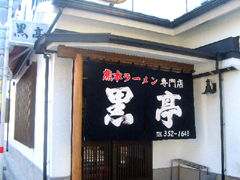
Kuro-tei's tonkotsu soup is low in fat and has a refreshing aftertaste. It uses only a large amount of pork head and is painstakingly made by hand by artisans. It is all very compatible with homemade noodles, char siu and burnt garlic oil.
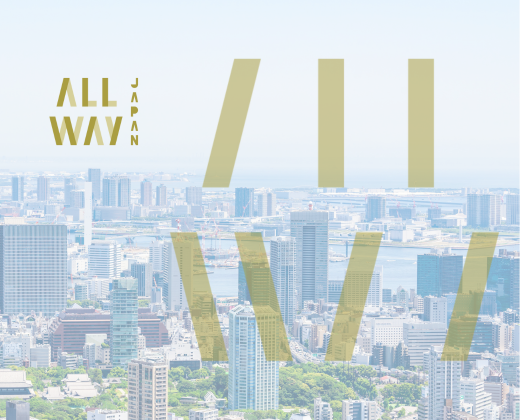
Spices are carefully selected from the method of grinding, and small quantities are used depending on the ingredients. Curry, which pursues the taste of Honba India, which is not intended for Japanese people, has a reputation for not getting tired of eating it every day. Vegetarian menu available. For non-vegetarians, Muslim halal meat is always used. Daily curry set meals with several types are also popular. Lunch 1000 yen, dinner 1580 yen ~.
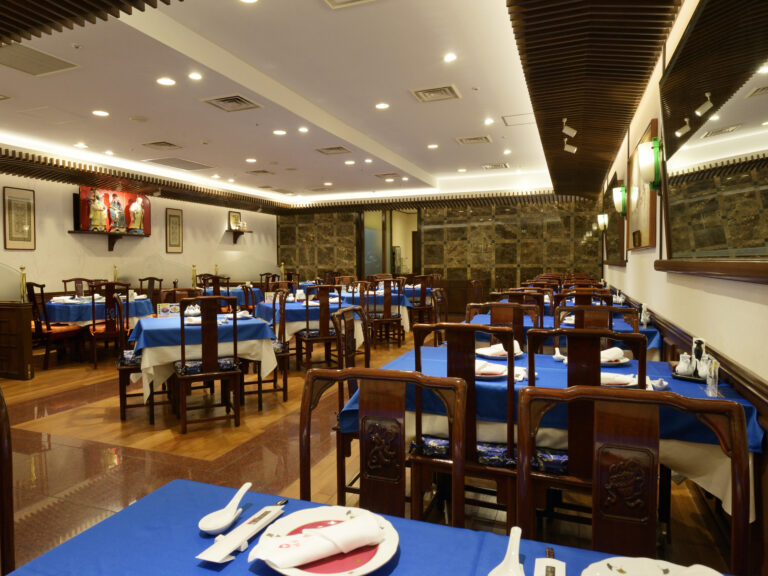
You can enjoy authentic Sichuan cuisine, including dishes made with a selection of ingredients, such as stewed shark fin and brimmed nest soup, which are specially made by Peach Blossom, and Sichuan mapo tofu with pepper and chili sauce with dandan noodles and shrimp. Be careful because Taiping Yan is not on the menu. Kaiseki lunch 3000 yen ~, Kaiseki dinner 8000 yen ~.
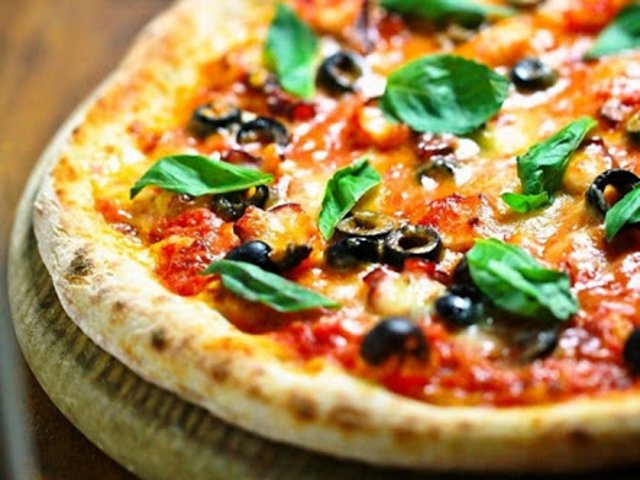
Italian, which is made with completely pesticide-free fresh vegetables and herbs delivered daily from its own vegetable garden, has a full-fledged taste that differs in taste and aroma. The restaurant has a dining floor and a cafe floor, which are divided into table and sofa seats.

A store reminiscent of the good old days, reusing sake houses from the Edo period and with antique chairs and tables. It is packed with lunch and coffee by day and beer restaurant by night. YOKOBACHI, a sister shop with gardens converted from an old private house nearby, is a popular Japanese and Chinese restaurant.
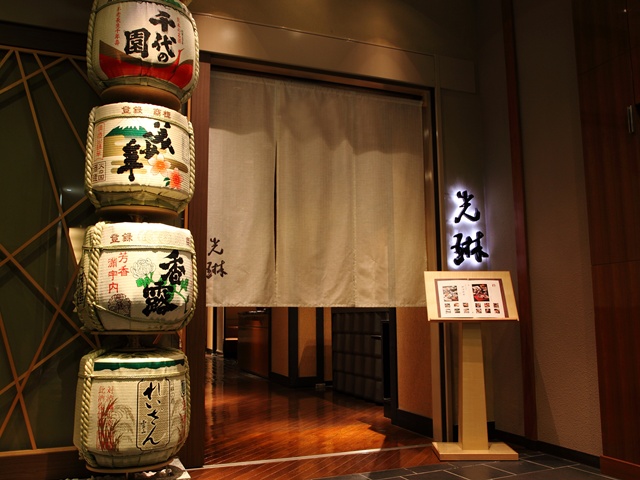
Kumamoto's carefully selected ingredients, a variety of dishes full of personality that make use of its flavor; sushi, horse stings, and other single dishes to kaiseki dishes; and a rich lineup of sake.
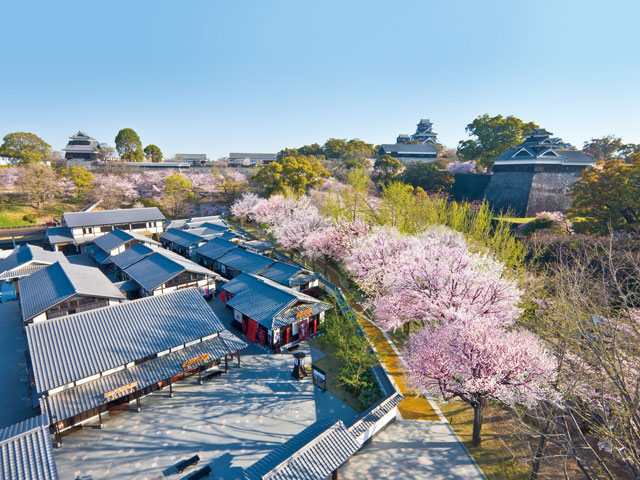
Cherry Blossom's alley is a restaurant where you can enjoy the unique food culture of Kumamoto Prefecture with your eyes and tongue, such as local dishes and menus that can only be enjoyed here. A souvenir shop that sells famous products from Kumamoto and limited goods from Jōsaien. More than 20 stores selected from the Kumamoto prefecture are still in the house. In addition, the Kumamoto Museum Wakuwakuza is a facility where you can learn about the history of Kumamoto Castle and Kumamoto in virtual images and experience corners (300 yen for adults, 100 yen for elementary and junior high school students).
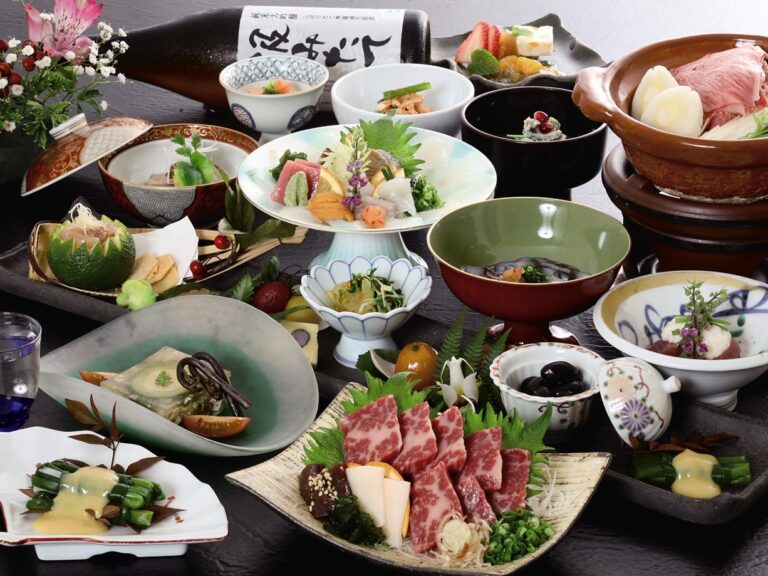
A local restaurant that has been popular since 1971. In addition to fine horse meat dishes such as marbled horse-bashi and horse-baked bruises, local items such as rice from Kumamoto Prefecture and Nori Suizenji, which is rare in Kumamoto, are popular among tourists. The courses that can be ordered from two people can enjoy dishes that make use of seasonal Kumamoto ingredients, such as the seating course from 4400 yen and the local cuisine course from 5500 yen.
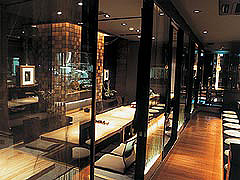
A shop where you can enjoy the various flavors of Kumamoto. There are courses ranging from 7700 yen to the local cuisine to 7700 yen to the creative cuisine to 7700 yen, and you can enjoy the local cuisine: spicy lotus root, fresh marbled meat sashimi, horse nigiri using the meat, and dago soup. Shabu-shabu of horsemeat and sukiyaki of horsemeat 3630 yen (2 servings) are also popular.
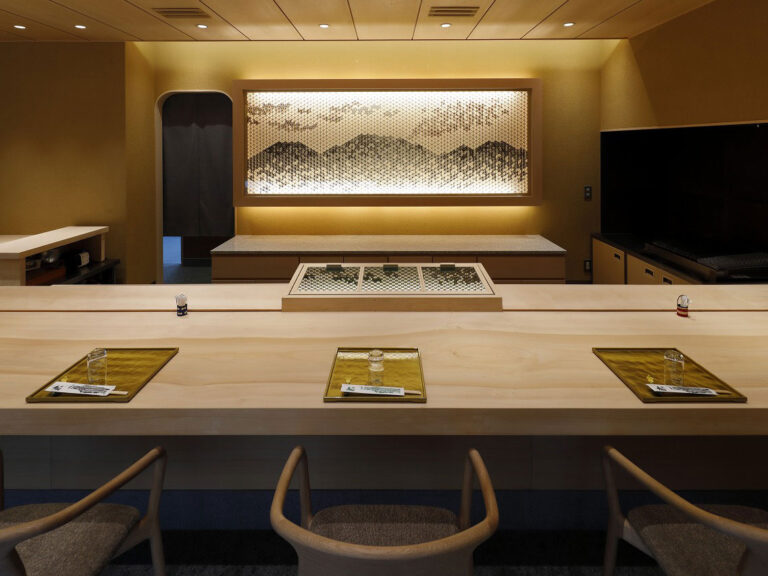
There is also a reputation for local dishes such as local seats at 6600 yen, and for rice rice at 1500 yen and sushi.










